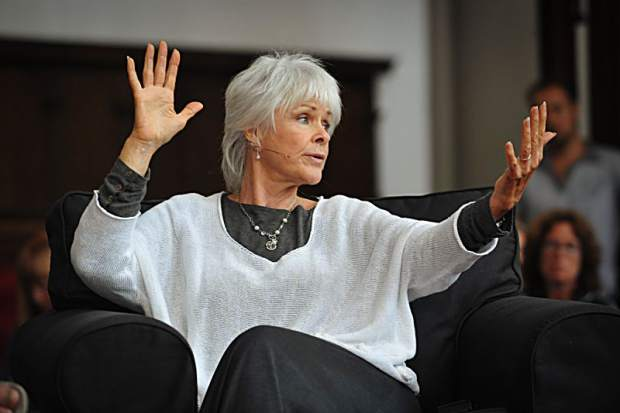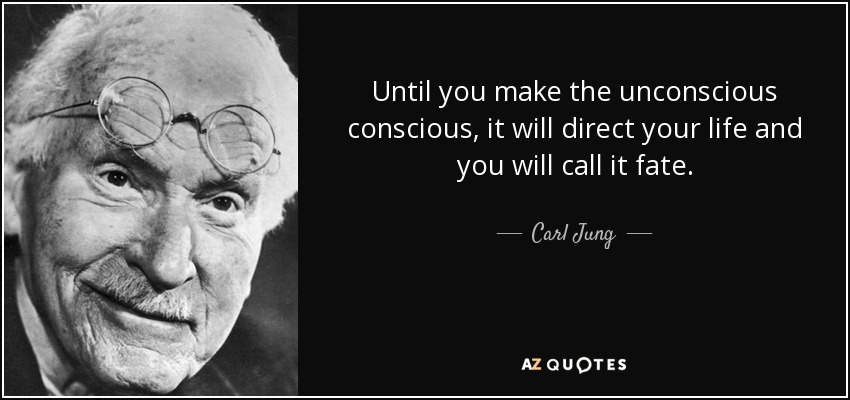This woman heals what therapists can't:
Byron Katie.
She spent years depressed and suicidal until one realization...
Now, with only 4 questions, she has healed millions from anxiety, stress, and overthinking.
Here's her philosophy: 🧵
Byron Katie.
She spent years depressed and suicidal until one realization...
Now, with only 4 questions, she has healed millions from anxiety, stress, and overthinking.
Here's her philosophy: 🧵

Before her awakening, Byron Katie's life was a nightmare.
She was clinically depressed, agoraphobic, and addicted to alcohol. For nearly 10 years, she could barely leave her bedroom.
Self-hatred consumed her so completely she slept on the floor, feeling unworthy of a bed.

She was clinically depressed, agoraphobic, and addicted to alcohol. For nearly 10 years, she could barely leave her bedroom.
Self-hatred consumed her so completely she slept on the floor, feeling unworthy of a bed.


Then on February 1986, something inexplicable happened.
A cockroach crawled over her foot while lying on the floor of a halfway house.
In that moment, she experienced a profound awakening.
She realized it wasn't the world causing her suffering - it was her thoughts about the world.
A cockroach crawled over her foot while lying on the floor of a halfway house.
In that moment, she experienced a profound awakening.
She realized it wasn't the world causing her suffering - it was her thoughts about the world.
Katie (as she prefers to be called) discovered that when she believed her stressful thoughts, she suffered.
When she questioned them, the suffering disappeared.
This simple insight became "The Work" - a method so powerful it's been called "cognitive therapy on steroids."
When she questioned them, the suffering disappeared.
This simple insight became "The Work" - a method so powerful it's been called "cognitive therapy on steroids."
The Work operates on a simple principle:
Suffering is caused by believing thoughts that argue with reality.
"My partner should listen more" creates suffering because you're arguing with what is.
When you investigate this belief, you discover its costs and find freedom.
"My child should respect me more" creates anger.
When investigated, you discover you're not respecting yourself - and that's where true change begins.
Suffering is caused by believing thoughts that argue with reality.
"My partner should listen more" creates suffering because you're arguing with what is.
When you investigate this belief, you discover its costs and find freedom.
"My child should respect me more" creates anger.
When investigated, you discover you're not respecting yourself - and that's where true change begins.
Here's the kicker:
Katie's turnaround - taking your original statement and reversing it.
"My husband doesn't appreciate me" becomes "I don't appreciate him" or "I don't appreciate myself."
This reveals blindspots you couldn't see before.
Katie's turnaround - taking your original statement and reversing it.
"My husband doesn't appreciate me" becomes "I don't appreciate him" or "I don't appreciate myself."
This reveals blindspots you couldn't see before.
Most therapeutic approaches try to change negative thoughts into positive ones.
Katie doesn't REFRAME the thought.
She says, question its very nature.
Is it TRUE?
Katie doesn't REFRAME the thought.
She says, question its very nature.
Is it TRUE?
1. Is it true?
2. Can you absolutely know it's true?
3. How do you react when you believe that thought?
4. Who would you be without that thought?
2. Can you absolutely know it's true?
3. How do you react when you believe that thought?
4. Who would you be without that thought?
From a neurological standpoint the 4 questions:
• Interrupt automatic thought patterns
• Create distance between you and your thoughts
• Engage the prefrontal cortex rather than the limbic system
• Activate neural networks associated with insight and clarity
Research shows it reduces depression, anxiety, and PTSD symptoms -in real time- by 60 %.
.
• Interrupt automatic thought patterns
• Create distance between you and your thoughts
• Engage the prefrontal cortex rather than the limbic system
• Activate neural networks associated with insight and clarity
Research shows it reduces depression, anxiety, and PTSD symptoms -in real time- by 60 %.
.
What makes The Work different from traditional therapy?
• It's entirely self-guided. No expert interpretation needed.
• It works on any stressful thought, regardless of severity.
• It creates immediate relief, not gradual improvement.
• It's entirely self-guided. No expert interpretation needed.
• It works on any stressful thought, regardless of severity.
• It creates immediate relief, not gradual improvement.
The judgments we make about others are actually judgments we're making about ourselves.
As Katie says, "When I judge someone, I'm really judging myself. There is no 'out there'."
As Katie says, "When I judge someone, I'm really judging myself. There is no 'out there'."
The Work reveals three kinds of business:
• Your business
• Other people's business
• God's business (reality beyond our human control)
Suffering occurs when we mentally live in someone else's business.
Peace comes from staying in your own business.
• Your business
• Other people's business
• God's business (reality beyond our human control)
Suffering occurs when we mentally live in someone else's business.
Peace comes from staying in your own business.
The ultimate gift of The Work?
Freedom from the mind's tyranny.
As Katie says, "I don't let go of my thoughts. I question them, and they let go of me."
When stressful thoughts are seen for what they are, they dissolve by themselves.
Freedom from the mind's tyranny.
As Katie says, "I don't let go of my thoughts. I question them, and they let go of me."
When stressful thoughts are seen for what they are, they dissolve by themselves.
In my decades of working with clients, I've seen the same pattern repeatedly:
People are trapped by thoughts they believe are absolute truth.
Once they learn to question these mental constructs, transformation happens rapidly.
I've guided hundreds through this process - from CEOs to students to trauma survivors.
People are trapped by thoughts they believe are absolute truth.
Once they learn to question these mental constructs, transformation happens rapidly.
I've guided hundreds through this process - from CEOs to students to trauma survivors.
Anxiety isn’t a flaw.
It’s the psyche’s way of calling you back to yourself.
I teach a Jungian, imaginal approach to transform anxiety into creativity and presence.
Start with my free 5-day course:
The Imaginal Path to Anxiety Release →
offers.lorwenharrisnagle.com/imaginal-path-…
It’s the psyche’s way of calling you back to yourself.
I teach a Jungian, imaginal approach to transform anxiety into creativity and presence.
Start with my free 5-day course:
The Imaginal Path to Anxiety Release →
offers.lorwenharrisnagle.com/imaginal-path-…

I hope you've found this thread helpful. Follow me @LORWEN108 for more.
Like/Repost the quote below if you can:
Like/Repost the quote below if you can:
https://twitter.com/3065974983/status/1969355888655024231
• • •
Missing some Tweet in this thread? You can try to
force a refresh



















